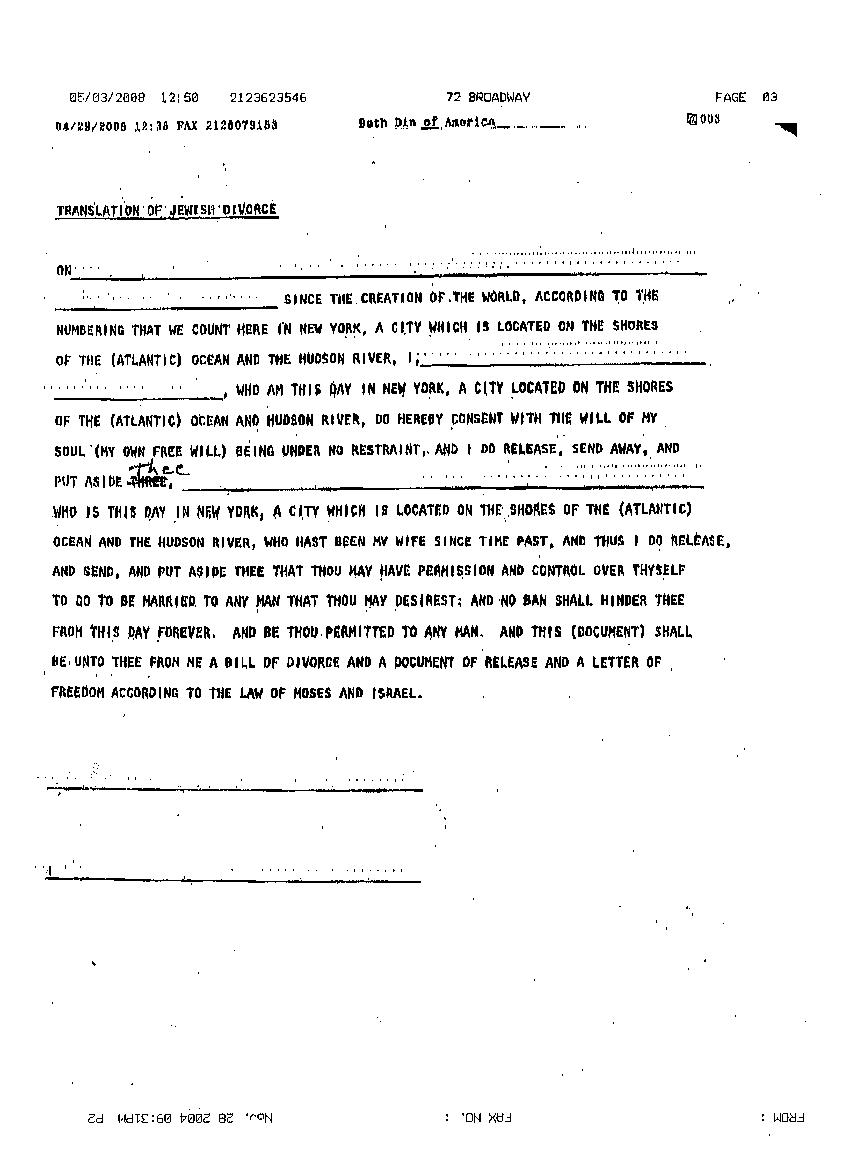If a get in not written according to particular laws instituted by the Rabbis, Rabbi Meir holds that a woman who gets remarried based on this is forbidden both to her first husband and to the second one and children born from the second or her remarriage to the first are mamzerim. There are also many other ramifications such as, the woman loses her ketuba, she can’t eat truma and many others. According to the gemara, the rabbis disagree with Rabbi Meir about some of the cases. There is a difference of opinion whether he thinks a woman can get remarried based on this get or only if she is already remarried and has children, we don’t consider her children mamzerim. A similar situation occurs when a husband dies childless and one of the wives either is forbidden to one of the brothers, thus allowing all other wives to marry others without performing yibum, or one of the wives marry the brother and the other wives marry others and then they find out that the wife (who was forbidden or married the brother) was an aylonit (someone who can’t have children and never shows signs of puberty) and was therefore never married in the first place. The other wives now can’t stay married to their new husband and also have to do chalitza with the brother.
Podcast: Play in new window | Download
Subscribe: Apple Podcasts | Spotify |
